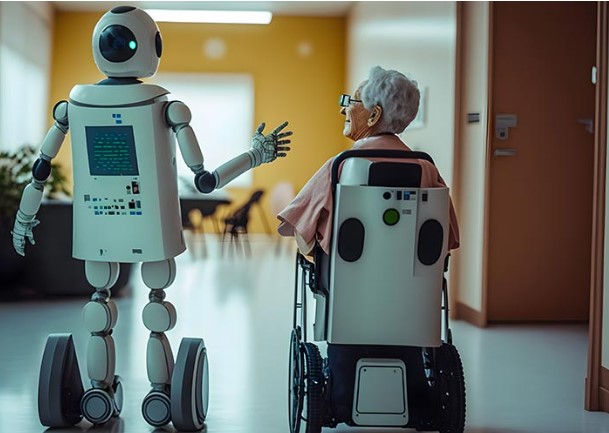
Harnessing The Power Of AI In Healthcare: Revolutionizing Medical Practices.
Date:

Share post:
Artificial Intelligence (AI) is transforming the healthcare landscape at an unprecedented pace, offering remarkable potential for improving patient care, diagnostics, and operational efficiencies. By leveraging AI-powered tools and algorithms, healthcare professionals are embracing new opportunities to enhance decision-making, streamline workflows, and provide personalized treatments. In this article, we delve into the various ways AI is revolutionizing medical practices, exploring its impact across different aspects of healthcare.
Enhancing Diagnostic Accuracy and Efficiency
AI-powered tools, such as large language model platforms like ChatGPT, Bard, and Bert, are revolutionizing the way medical scans and images are analyzed. These tools possess the ability to read and interpret complex medical data, assisting doctors in detecting subtle lesions, polyps, and abnormalities that may be missed by human eyes alone. With algorithmic support, AI algorithms are rapidly improving diagnostic accuracy, leading to earlier detection of diseases and more effective treatment planning.
Predictive Analytics and Disease Prevention
The integration of AI into healthcare has opened up new horizons for disease prediction and prevention. By analyzing vast amounts of patient data, AI algorithms can identify patterns and risk factors that enable doctors to predict diseases like Alzheimer’s, cancer, and Parkinson’s. Through early identification, healthcare professionals can implement targeted interventions and preventive measures, potentially saving lives and improving long-term patient outcomes.
Workflow Optimization and Administrative Efficiencies
AI’s transformative impact extends beyond diagnostics and treatment. It has the potential to optimize workflow and streamline administrative processes, leading to significant operational efficiencies. AI-powered systems can automate tasks such as maintaining electronic health records (EHRs), pre-authorizing insurance claims, and managing billing processes. By reducing administrative burdens, healthcare providers can dedicate more time and resources to patient care, ultimately enhancing the overall healthcare experience.

Precision Medicine and Tailored Treatments
The advent of AI has paved the way for precision medicine, a field that aims to deliver personalized treatments tailored to individual patients. By analyzing large datasets, including genetic profiles, AI algorithms can identify specific genetic mutations and variations that inform treatment decisions. This enables healthcare professionals to prescribe medications and therapies that are most likely to be effective for each patient, leading to improved treatment outcomes and reduced adverse effects.
Mental Health Support and Behavioral Analysis
AI is making significant strides in the realm of mental health support. Machine learning algorithms are being deployed to track and analyze human emotions, facilitating the detection and treatment of conditions such as depression and anxiety. AI-powered chatbots and digital tools engage with patients, providing personalized support and coping mechanisms. Moreover, AI-driven behavioral analysis helps identify potential warning signs and triggers, enabling timely interventions and proactive care.
Also Read: IndiGo’s Mega Aircraft Order Propels India’s Aviation Sector into the Future

Ethical Considerations and Future Challenges
While AI holds immense promise for revolutionizing healthcare, it also raises ethical considerations and challenges. Issues related to data privacy, algorithmic biases, liability, and regulatory frameworks need careful consideration. The World Health Organization (WHO) stresses the importance of ensuring AI systems are transparent, accountable, and aligned with the diverse socio-economic and healthcare settings in which they operate. Balancing technological advancements with ethical guidelines is crucial for fostering trust, maintaining patient autonomy, and ensuring the responsible use of AI in healthcare.
Conclusion:
The incorporation of AI into healthcare has ushered in a new era of possibilities, transforming the way medical practices operate. From enhancing diagnostic accuracy and efficiency to enabling predictive analytics, AI is revolutionizing various aspects of healthcare. By embracing AI-powered tools, healthcare professionals can provide better, more personalized care, improve patient outcomes, and optimize operational efficiencies. However, it is essential to navigate the ethical considerations and challenges that arise with the use of AI in healthcare. As themedical community continues to harness the power of AI, it is crucial to strike a balance between technological advancements and ethical responsibilities, ensuring that patient well-being, privacy, and autonomy remain at the forefront of healthcare practices. With careful implementation, AI has the potential to reshape the healthcare landscape, making it more effective, efficient, and patient-centered than ever before.
Also Read: Bridging the Gender Funding Gap for Indian Women Entrepreneurs
